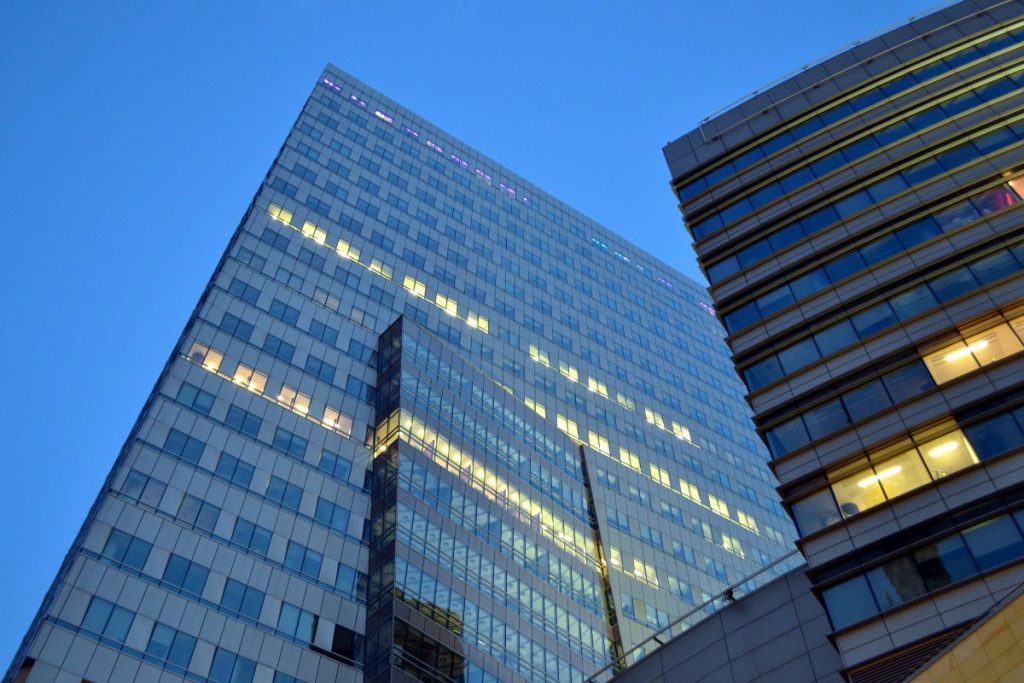In the consulting world, working at McKinsey is about as prestigious as it gets. Many people are surprised that to fellow consultants it’s actually more impressive than working at one of the ‘Big 4’. But what are the real pros and cons of working there?
Some important benefits of working at McKinsey are its exceptional global reputation, and the excellent professional development program. Some disadvantages include long hours, a strained work-life balance, and a highly competitive working atmosphere.
In this post, I’ll take a look at:
- The most important 7 advantages of working at McKinsey
- The 7 biggest disadvantages of working there

7 Pros Of Working At McKinsey
1. Opportunities For Growth And Advancement
This is probably the biggest draw for those that join McKinsey.
McKinsey is a huge global player.
McKinsey operates in 65 countries throughout the world, and at 130 branches. (According to their website) They have approximately 38,000 employees around the world.
This means there is a huge amount of scope for moving up the ladder quickly (assuming you are delivering quality results).
There is also the chance of moving branch or even country.
McKinsey services corporations from a wide range of sectors, so you can also have the opportunity to transition into consultancy in a different area.
McKinsey also offers a range of career paths to its employees.
2. Strong Reputation
Here’s another biggie!
McKinsey is just about as prestigious as it gets in management consultancy. As I read one ex-consultant of McKinsey write on Reddit, ‘The doors of the world are open to you.’ (Source)
Working for McKinsey gives you full kudos in the profession, and also when talking about your career at parties.
McKinsey is an established global firm, and work with many of the Fortune 500. Unfortunately, due to client confidentiality, they don’t share who these are!
3. Talent And Network
Building your network is probably the biggest factor for many employees of McKinsey.
You are blessed to work alongside a high-quality workforce. McKinsey only recruits the cream-de-la-cream of talent.
Often these people will have a palpable sense of mission and purpose in their lives, both at work and outside.
McKinsey employees are generally:
- Switched on
- Highly motivated
- Talented
- Engaged
This is good news because you are going to spend a whole lot of time with them!
4. See The World!
This one divides opinion, and can possibly be seen as a con.
But the truth is, travel is a large part of the life a McKinsey consultant. You will regularly be travelling to different locations in your locality, and possibly overseas.
Bear in mind that this is business travel. It’s living out of suitcases, and business meetings, and all that sort of thing.
You are unlikely to have any free time in the destinations that you visit.
However, if you enjoy a life of hotels, and working on trains and planes, then consulting at McKinsey is for you.
5. Comprehensive Benefits Package – Particularly As You Move Up The Ladder
McKinsey pays well. The starting salary is almost always higher than the ‘Big 4’, and things ramp up as you move up the ladder.
At McKinsey, the salary for entry-level consultants (Analysts) ranges from $90,000 to $110,000 per year, while the figure for MBA-level/experienced Associates can go up to $233,000.
Engagement Managers typically earn around $250,000, while Partners and Directors can earn up to $1,300,000.
Here is what typical salaries look like a different levels:
| Position | Annual Salary (In US) |
| Entry level consultant | $90,000 to $110,000 |
| Associates | $233,000 |
| Engagement Managers | $250,000 |
| Partners | Up to $1,300,000 |
(Source)
6. Work Hard Play Hard!
If your motto is ‘work hard play hard’ then a career at McKinsey is for you!
Work is fully engrossing, and you will be working extended hours. However, there are many opportunities to intermingle with your work colleagues and clients.
Expect many of the following:
- Work parties
- Sports clubs based around your office
- Networking events
7. Understand Business
Many people that work at companies like McKinsey never intend to work there all their working lives. It can be a fantastic vehicle to help them understand more about how large businesses work and how they can be improved.
You will be interacting with powerful client employees, often at the board level, and the learning curve is immense.
There are many career paths that McKinsey employees follow, including:
- Continuing to work at large consulting firms
- Going solo into consultancy
- Starting their own business
- Working at high-level roles in large businesses

7 Cons of working at McKinsey
1. Highly Competitive To Be Employed In First Place
Before you even get your foot in the door, just understand that getting a job at McKinsey is super competitive!
Only about 1% of applicants are successful. (Source)
Many of these will have invested heavily in terms of time and even money into getting their qualifications and experience to a point where success is more likely.
2. Limited Work-Life Balance
For many employees, this is probably the biggest negative issue about working at McKinsey.
Work is highly stressful, and can involve very long hours. This can have a really detrimental effect on your work-life balance.
Work is fully engrossing, both emotionally and intellectually, and that can lead employees feeling depleted in energy and time for other things in life, such as:
- Family
- Hobbies
- Friends
- Leisure time
McKinsey does try to assert it respects work-life balance in its PR statements, but let’s be real! The job is long and arduous and intense!
3. Extensive Travel
I hope you don’t mind that I’ve included this both as a pro and a con!
Travel is a big part of the job. That’s just a fact!
For many, this will be a massive bonus. But for others, this will mean a disjointed life, and a feeling of living continually out of a suitcase.
Why do consultants travel so much?
Well, typically employees travel for the following reasons:
- Meet with clients at their locality
- Assess the business systems and processes of clients at their location
- Attend training events
- Audit businesses
How much you actually travel depends on the sector you’re working in, but many McKinsey employees will travel:
- At least a few days each month
- Sometimes a few days each couple of weeks
- Or even have the majority of their working lives outside of the office
4. Long Hours
Back to this one again!
Be prepared to put in extended hours, and this can be a lot worse at certain times of the year. If you’re after a 9 to 5, then this role is not for you.
Pretty much all McKinsey consultants report:
- Working on some weekends
- Long hours
- Working on some holidays
5. High-Pressure Work Environment
As the 1% success rate on entry to the company suggests, working for them is highly pressurized. There are many people who would gladly take your job!
A job at McKinsey is a real pressure cooker!
Work is high-intensity and fast-paced. Managing stress is a key skill in working for McKinsey.
6. Steep Learning Curve
McKinsey has good quality professional development programs in place, but you must be prepared to learn at a rapid rate.
Much of the learning will be through on-the-spot, work-related activities.
Experience is a tough teacher! But necessary!
7. Competition For Promotions And Recognition
Only about 2% of McKinsey employees will go on to rise to the rank of Partner (that’s the highest tier). (Source)
This is a dog-eat-dog world. Everyone who works there is a high-flier and wants to maximize progress in their own careers.
Working at McKinsey is a dog-eat-dog undertaking!
Everyone who works there is a high-flier in some capacity, and everyone is trying to make career progress in some way or another.
